
Do you have an interest in the classical languages? Do you want to know how people lived in Antiquity and how their lives have influenced our own culture? Groningen offers Antiquity a voice!
During this Bachelor’s programme, you will acquaint yourself with both Greek and Latin. Additionally, you will study Antiquity’s cultures and their importance to our modern culture.
The degree programme in Groningen distinguishes itself from other universities by offering Greek and Latin in combination with the culture-focused seminars in Ancient History, Archaeology and Ancient Philosophy. Thereby, you will study the contexts in which ancient texts were written and the interaction between language, literature, politics, community and the ancient frame of mind. On top of this, you will also explore how Antiquity has left its mark on later periods, such as the Middle Ages and the Renaissance.
In the first year of this degree programme, you will study subjects, such as grammar, drama, prose, history of literature, alongside an introduction to the three cultural seminars. In the second year, you will continue your studies by reading famous ancient epics and lyrical poetry, learning about linguistics and literary studies, and taking your first research seminars, which includes an excursion to Greece or Rome. In the third year, you take a minor’s programme and, finally, you will write a thesis.
You can follow this programme both full-time and
part-time.
Sign
up now
for the Open Day
on Saturday 12 April!
During the first year of the bachelor's programme you will improve your proficiency in Greek and Latin texts, training you to read and translate these texts independently and fairly quickly. You will also read some of the works of great authors, such as Euripides, Plato and Cicero. Additionally, you will acquire a sound understanding of Antiquity by discussing ancient history, archaeology and philosophy. Finally, the programme will focus on the development of your academic skills.
| Semesters | ||||
|---|---|---|---|---|
| CoursesCourse Catalog > | 1a | 1b | 2a | 2b |
| Introduction to the Ancient Greek World (5 EC) | ||||
| Greek Language Proficiency * (10 EC) | ||||
| Latin Language Proficiency* (10 EC) | ||||
| Overgangsmodule Grieks of Latijn* (10 EC, optional) | ||||
| Introduction to the Roman World (5 EC) | ||||
| Highlights of the Classic Literature (5 EC) | ||||
| Griekse Lectuur 1 (10 EC) | ||||
| Latijnse Lectuur 1 (10 EC) | ||||
| Research and Report: Academic Skills (5 EC) | ||||
In the second year, you have sufficient language proficiency to read the texts in more depth. You will study epic (e.g. Homer and Vergil) and historiography (e.g. Herodotus and Tacitus), and study inscriptions and papyri, which serve as another source of history. In addition, you will start on the research seminars, go on an excursion to Greece or Italy to see the remains of Greek and Roman civilizations.
| Semesters | ||||
|---|---|---|---|---|
| CoursesCourse Catalog > | 1a | 1b | 2a | 2b |
| Classics, a controversial heritage (10 EC) | ||||
| Griekse Lectuur 2 (10 EC) | ||||
| Latijnse Lectuur 2 (10 EC) | ||||
| Analysis of Greek and Latin Poetry: From Hymne to Satire (5 EC) | ||||
| Epigraphy and Papyrology (5 EC) | ||||
| Research Seminar Ancient History and Archaeology (including an excursion to Greece or Italy) (10 EC) | ||||
| Historiography in Antiquity (5 EC) | ||||
| Research Seminar Ancient Philosophy (5 EC) | ||||
The first semester of the third year is reserved for a minor. A minor is a package of related subjects that prepares you to continue in a Master's track or to enter the job market. In the second semester, you will follow research seminars and write your bachelor's thesis.
| Semesters | ||||
|---|---|---|---|---|
| CoursesCourse Catalog > | 1a | 1b | 2a | 2b |
| Minor (30 EC) | ||||
| Research Seminar Greek: (5 EC) | ||||
| BA Thesis (10 EC) | ||||
| Research Seminar Latin (5 EC) | ||||
If you have not passed your final exams in Greek or Latin, you will take the bridging courses in Greek or Latin in combination with Language Proficiency.
| Programme options |
|---|
| Minors (minor) The fifth semester of your studies is dedicated to your Minor: a coherent set of future-oriented course units. It prepares you for a follow-on Master's degree program or for entering the labour market. You can opt for a Career Minor, a Minor abroad, a University Minor or a Faculty Minor. |
| University of Groningen Honours College (honours program) The Honours College will give talented, motivated students the chance to be challenged even more by following Honours programmes and taking part in numerous other activities. The Honours College comprises a broadening part and a deepening part and has a study load of 30 ECTS credit points besides the 180 ECTS credit points from your regular Bachelor programme. |
Please contact the study advisor if you have questions regarding studying abroad and an exchange for the BA Classis: drs. R.P. van der Borg studieadviseur.gltc rug.nl.
met Latijn en/ of Grieks op eindexamenniveau
met Latijn en/ of Grieks op eindexamenniveau
met Latijn en/ of Grieks op eindexamenniveau
met Latijn en/ of Grieks op eindexamenniveau
| Specific requirements | More information |
|---|---|
| previous education |
Voor de studenten die eindexamen hebben gedaan in óf Grieks óf Latijn (en dus niet in allebei), bestaat er de overgangsmodule voor de andere taal. Zij volgen in het eerste jaar een overgangsmodule in die taal in combinatie met de colleges Taalvaardigheid I en II. |
| other admission requirements |
Taaleis Engels: een VWO diploma, een VWO deelcertificaat voor Engels (met een 6 of hoger), minimum TOEFL eis iBT 90 (met een minimum van 21 voor alle onderdelen), of IELTS 6.5 (met een minimum van 6 voor alle onderdelen). Cambridge C1 Advanced of C2 Proficiency met een minimum score van 180. |
The degree programme will organize a matching procedure. Attendance is optional. The advice is not binding.
The Faculty of Arts believes students can decide for themselves whether they match with their chosen program based on the available bachelor program information, by visiting the Open Days, and by participating in a Webclass and/ or Student for a Day. If you are unable to attend one of these activities, a final opportunity for matching is to contact one of the students of the program in June.
If you have any further questions about matching, check out: https://www.rug.nl/matching
| Type of student | Deadline | Start course |
|---|---|---|
| Dutch students | 01 May 2025 | 01 September 2025 |
| 01 May 2026 | 01 September 2026 | |
| EU/EEA students | 01 September 2025 | 01 September 2025 |
| 01 September 2026 | 01 September 2026 |
The Faculty of Arts believes students can decide for themselves whether they match with their chosen program based on the available bachelor program information, by visiting the Open Days, and by participating in a Webclass and/ or Student for a Day. If you are unable to attend one of these activities, a final opportunity for matching is to contact one of the students of the program in June.
If you have any further questions about matching, check out: https://www.rug.nl/matching
| Specific requirements | More information |
|---|---|
| previous education |
Requirements for International diploma holders: see Admissions Guide. It contains the criteria for all International VWO equivalents: https://www.rug.nl/education/application-enrolment-tuition-fees/admission/procedures/application-informatie/with-non-dutch-diploma/entry-requirements/bachelor-entry-requirements/vwo-equivalent-qualifications Additionally, you will need to have passed your final exams in Greek and/or Latin, to satisfy the entry requirement. If you have not passed your final exams in Greek or Latin, you will take extra courses in Greek or Latin alongside Language Proficiency I and II. |
| language test |
International students will have to satisfy an additional Dutch language requirement, which can be met by passing the State Examination in Dutch as a Second Language (NT2, programme II). This examination guarantees Dutch proficiency at CEFR level B2. However, Dutch proficiency at CEFR level C1 or higher is recommended. Additional language requirement English: A VWO diploma or a subject certificate for VWO English (mark 6 or higher), minimum requirement of TOEFL iBT 90 (with a minimum of 21 on all items), or IELTS 6.5 (with a minimum of 6 on all items). Cambridge C1 Advanced or C2 Proficiency with a minimum score of 180. |
| Type of student | Deadline | Start course |
|---|---|---|
| Dutch students | 01 May 2025 | 01 September 2025 |
| 01 May 2026 | 01 September 2026 | |
| EU/EEA students | 01 September 2025 | 01 September 2025 |
| 01 September 2026 | 01 September 2026 |
If you want to continue to a Master's degree programme after you graduate, as most students do, you will have a wide range of programmes to choose from. With a Bachelor's degree in Classics, you are eligible for the following complementing Master's tracks at the University of Groningen:
The last two Master tracks will respectively prepare you for a job in secondary school education and research in higher education.
The diverse range of course units within an Arts degree, the training in language proficiency and the acquired critical and analytical abilities, have prepared students of the BA Classics for a range of different professions. Graduates of the BA Classics often end up in education or in research. You also have the possibility of becoming a staff member of a university) library or a museum (depending on your specialisation). Graduates of this degree programme have also continued to work as in jour
The expertise of the staff members of the Classics department in Groningen covers a wide range of subjects from Greek and Latin language and literature to ancient philosophy and from classical archaeology to ancient history. Students often have the opportunity to contribute to research projects, for instance as a student assistant.
Students are encouraged to attend the CRASIS Ancient World Seminar, where students and staff from all departments with an interest in Antiquity from the University of Groningen meet and discuss their research. Furthermore, internationally acclaimed scholars are invited to present papers. Every two years, our department hosts the international Groningen Workshop on Hellenistic Poetry.
Please see our research page for more information.
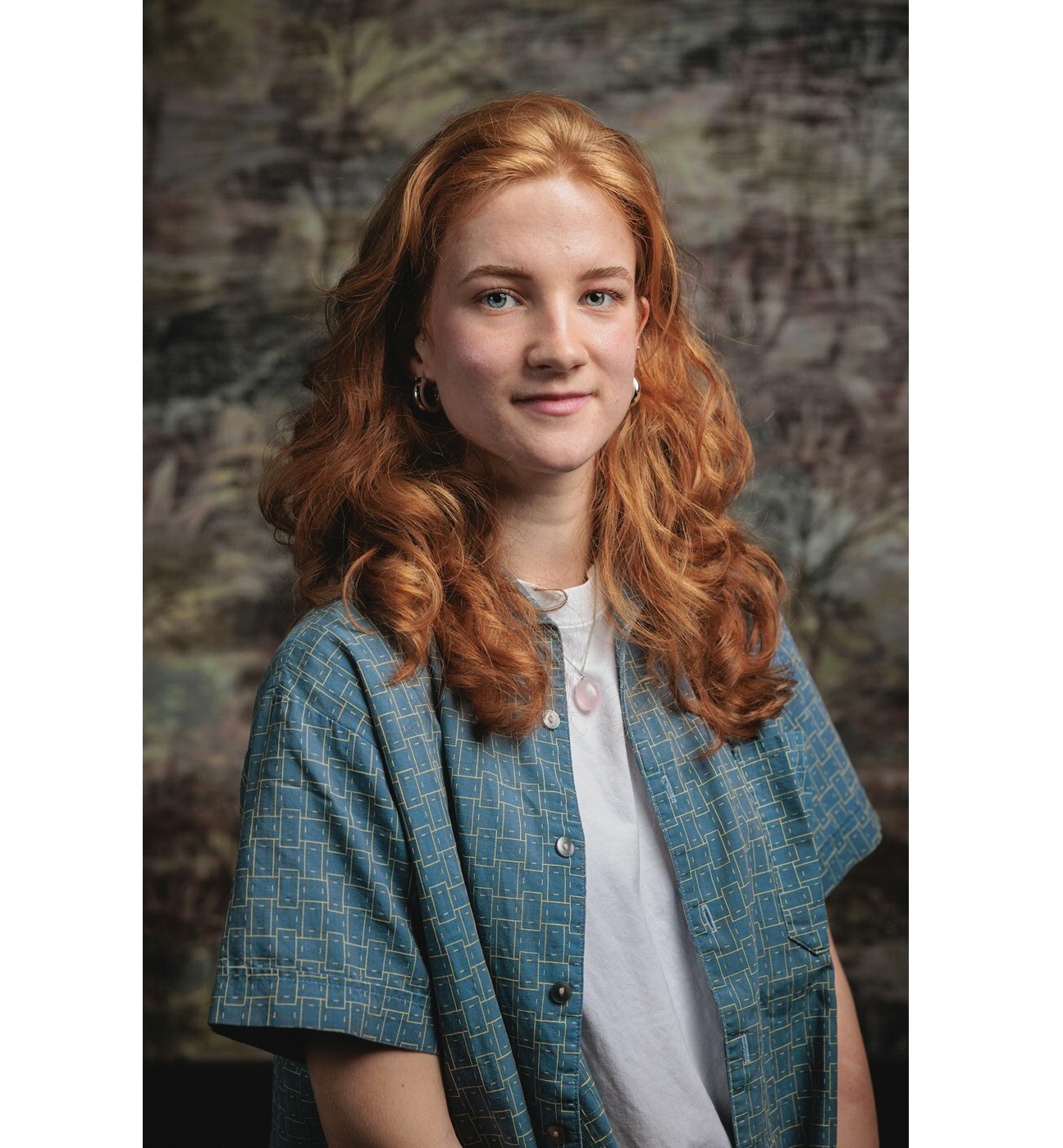
Hallo! Mijn naam is Sarah Elgersma, ik ben 20 jaar oud en ik ben tweedejaars studente Griekse en Latijnse taal en cultuur. Ik woon in Groningen en kom hier ook vandaan. Ik ben actief lid bij Boreas, de studievereniging van Grieks en Latijn, en heb in mijn eerste jaar als commissaris gediend in het bestuur. Naast de studie ben ik dol op lezen, sporten en mijn vrienden zien en ik heb ook nog een leuk baantje in de horeca!
Ik studeer Grieks en Latijn omdat Latijn op de middelbare school altijd een heel leuk vak heb gevonden. Ik ben dol op taal, maar ook op geschiedenis, kunst, cultuur en filosofie. Deze studie is daarom de perfecte combinatie van al mijn interesses. Ik ben naar meerdere open dagen geweest van de RUG en dit was de eerste studie die me echt aansprak. Om me verder voor te bereiden heb ik ook nog de webklas gevolgd en een meeloopdag gedaan, beide leuke manieren om je te oriënteren op een studie! Ik heb zelf op de middelbare school helemaal geen Grieks gehad. Ik ben er mee begonnen in mijn tussenjaar voorafgaand aan de studie, maar ik heb het grootste deel geleerd in het eerste jaar van de studie. Mocht je in één van de twee talen geen eindexamen gedaan hebben, komt dit zeker goed tijdens je studie!
Lees meer over Sarah en waarom zij ervoor koos om Griekse en Latijnse Taal en Cultuur te studeren in Groningen!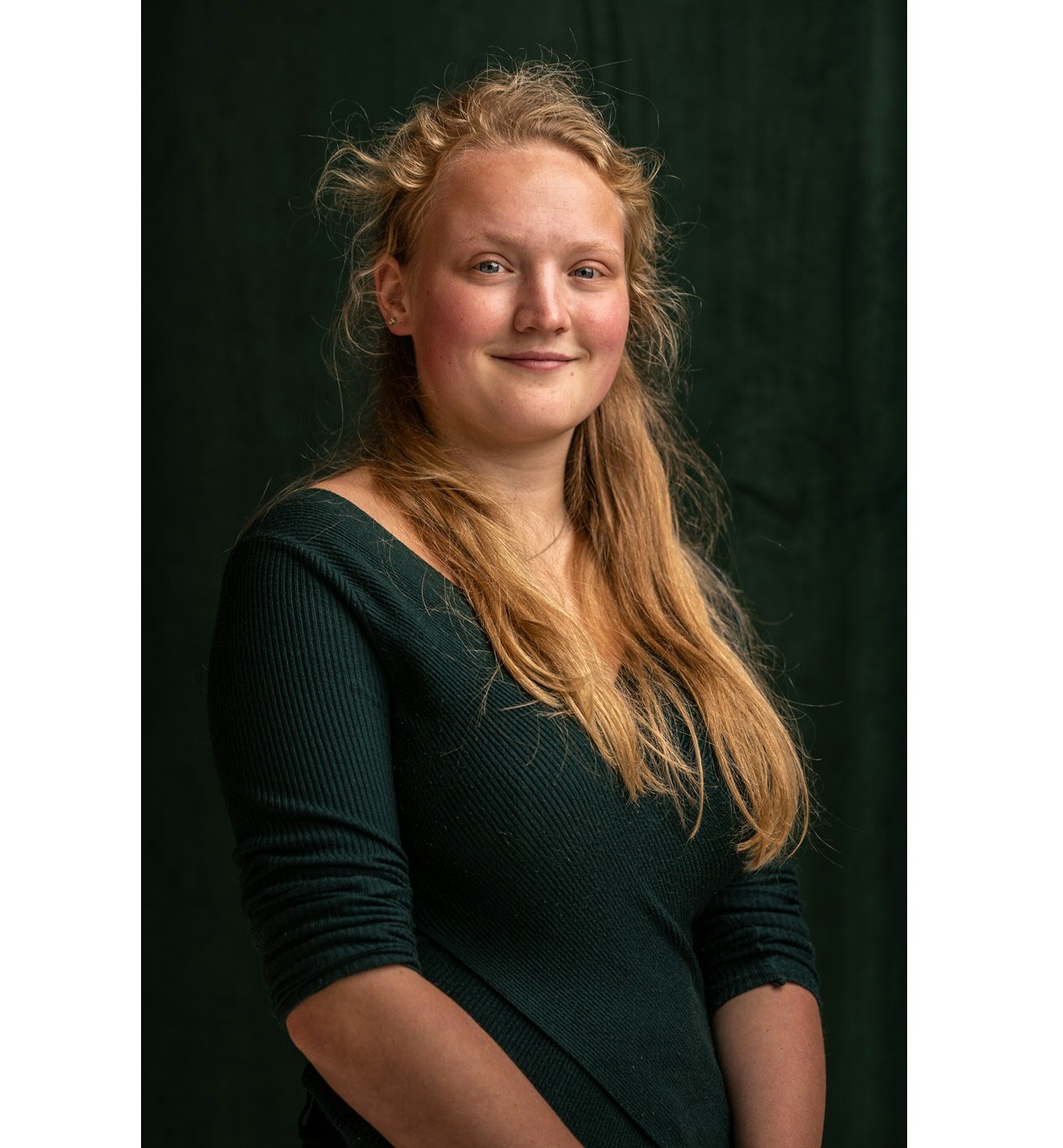
Hoi! Mijn naam is Pascalle van Setten, ik ben 20 jaar oud en zit nu in mijn vierde jaar van de bachelor Griekse en Latijnse Taal en Cultuur. Ik ben ook lid van studievereniging Boreas en heb een jaar gediend als secretaris. Ik woon sinds dit jaar in de stad, maar heb drie jaar vanuit Drenthe gereisd, dus ik ken de voor- en nadelen! Buiten school ben ik vaak met een verhaal bezig of heb ik een boek in mijn handen, maar ik spreek ook graag af met vrienden, loop lange rondes met mijn hond, en ik werk inmiddels als docent klassieke talen in de onderbouw.
Ik ben Grieks en Latijn gaan doen omdat dat was wat mij het meeste plezier gaf! Zelfs het huiswerk op de middelbare school was iets waarnaar ik uitkeek, en ik puzzelde maar al te graag met de teksten. Ik ontwikkelde bovendien een steeds grotere interesse in verhalen en cultuur, en hoe dat verandert—vooral wanneer het gaat om de oudheid: een wereld die ver in het verleden ligt, maar zulke diepe indrukken achter heeft gelaten dat het onlosmakelijk verbonden is met het heden! Sinds ik dit studeer is dit gevoel alleen nog maar sterker geworden.
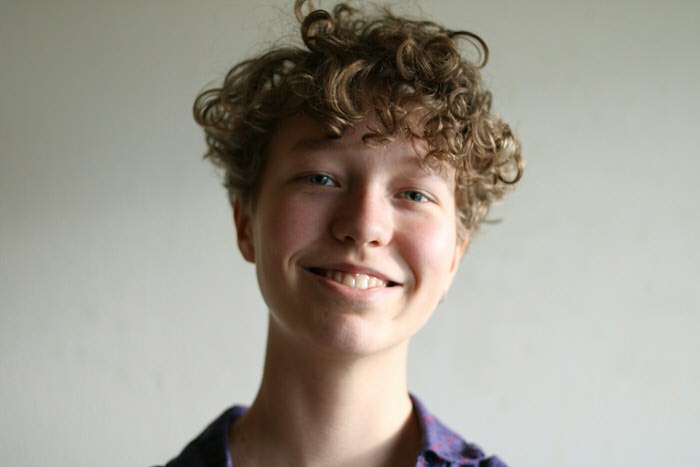
Dag! Ik ben David Lettink, 20 jaar oud, geboren en getogen in Groningen. Op dit moment zit ik in mijn 2e jaar GLTC en als mijn vrije ruimte vak volg ik “From Agamemnon to Alexander,” een vak over Oud-Griekse archeologie. Door GLTC heb ik mijn interesse in archeologie ontdekt en overweeg ik zelfs een carrière in dit vak (natuurlijk in combinatie met Grieks en Latijn). Verder zit ik bij de toneelcommissie van onze studievereniging Boreas, waarbij ik heb meegewerkt aan het vertalen van het script en waar wij dit jaar een opvoering van gaan maken! In mijn vrije tijd ben ik veel bezig met muziek, spreek ik graag met vrienden en familie af en doe ik aan (zeer matig) boulderen.
Ik heb altijd al een interesse in taal en cultuur gehad en op de middelbare school vond ik vooral Latijn een erg leuk vak. Eigenlijk was dit hetgene waar ik het meest enthousiast over werd en dacht ik “waarom niet?” Nu ik eenmaal bezig ben is het mij alleen nog maar duidelijker geworden dat dit is wat ik graag wil doen.
Ik woon al mijn hele leven in Groningen en ik heb het hier altijd erg goed naar mijn zin gehad. Ik heb wel overwogen om naar een andere stad te gaan, maar ik vond het ook erg fijn om in de buurt van familie te blijven. Zelfs al ken je Groningen al zo goed, het is toch nog weer een hele nieuwe ervaring als student!
Op dit moment zit ik er telkens meer over na te denken om naast GLTC meer de archeologie kant op te gaan. Ik vind vooral Bronstijd Griekenland erg interessant, dus wie weet beland ik op Kreta of op een andere interessante plek!
Een studie kan behoorlijk veel werk zijn en dat is in het begin flink schakelen, maar maak je vooral niet te veel zorgen over dingen als ‘wat als iets niet lukt of niet goed komt’: de opleiding zit vol met allemaal heel aardige en meedenkende mensen die klaar staan om je te helpen. Er is altijd iets mogelijk!
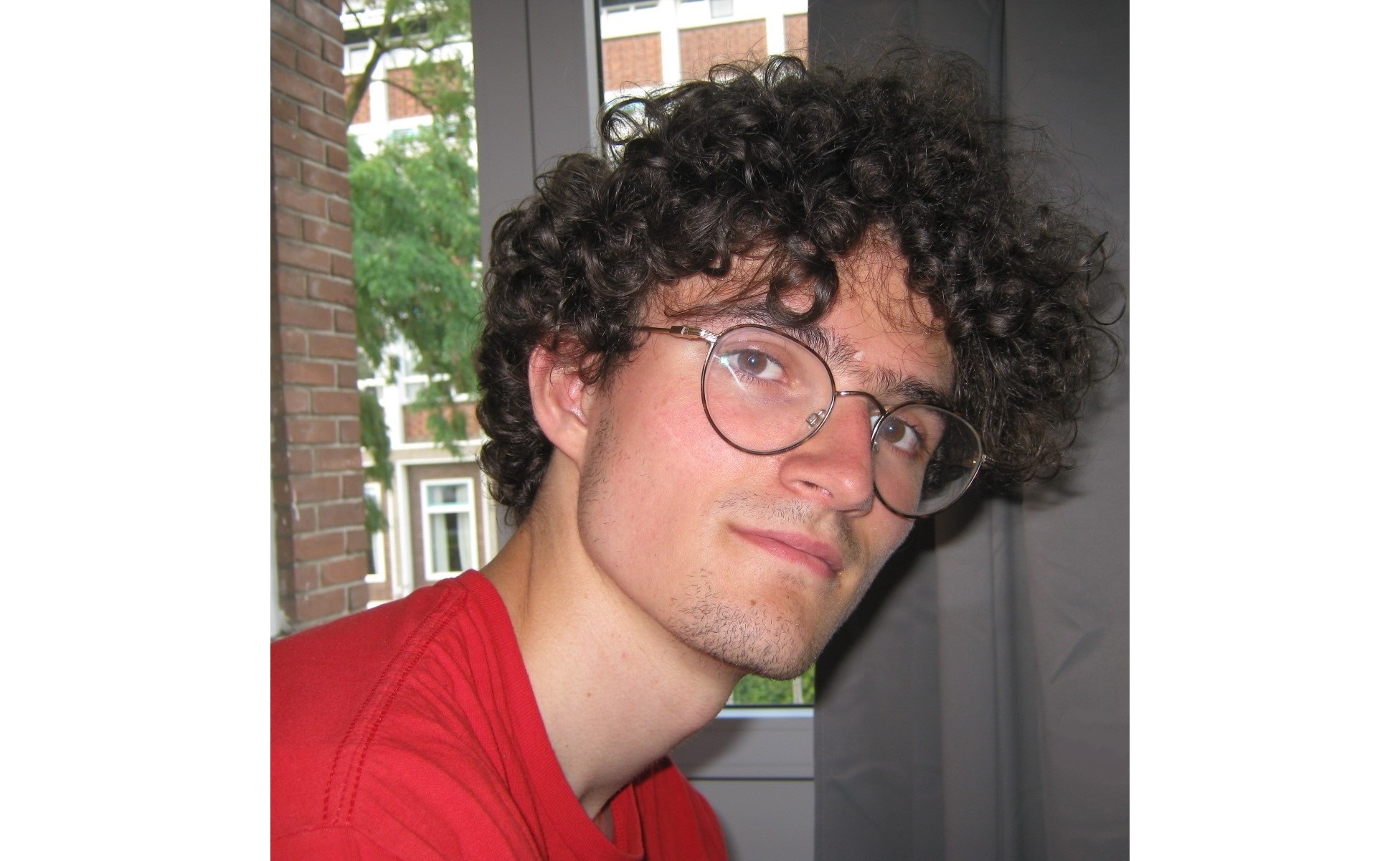
Hoi! Mijn naam is Aymon en ik ben 19 jaar. Ik zit nu in het tweede jaar van mijn bachelor Griekse en Latijnse Taal en Cultuur in Groningen. Als invulling van mijn vrije ruimte volg ik nu een vak over het jodendom bij Religion, Culture and Society. Ik besteed graag tijd aan mijn studie maar verder doe ik ook nog een hoop, zo werk ik achter de bar bij Vera, een poppodium in de stad, en drum ik in een bandje. Ik heb het zo enorm naar m’n zin!
Toen ik Latijn en Grieks kreeg op de middelbare school raakte ik heel erg geïnteresseerd in talen. Van grammatica tot taalgebruik en ook de cultuur waar talen zich in bevinden, ik vond het allemaal ontzettend boeiend. Na een paar jaar middelbare school stond eigenlijk wel vast wat voor studie ik ging doen. Ik ben toen voor de zekerheid nog wel een aantal keer naar een open dag geweest en ik heb ook nog een webklas gevolgd, maar die ervaringen sterkten mijn plannen alleen maar. Ik heb nog geen moment spijt gehad van mijn keuze want op al die dingen die ik vanaf het begin al leuk vond gaan we nu nog dieper in tijdens college dan ik me had kunnen wensen. De studie en de stof zijn gewoon perfect voor mij dus ik ben heel blij dat ik voor GLTC gekozen heb.
Ik ben opgegroeid in Groningen dus van jongs af aan heb ik meegemaakt hoe leuk Groningen voor studenten is. Nu ik zelf student ben heb ik dat nog veel beter door: er is hier voor ieder wat wils, zoveel leuke en diverse plekjes om te studeren en je weg te vinden. Groningen is zo’n leuke stad en je gaat echt een hele leuke tijd hebben als je hier komt studeren!
Eigenlijk ben ik nooit zo met de toekomst en mijn carrière bezig geweest. Veel mensen denken dat je met klassieke talen ook helemaal niet ver kan komen, maar dat is niet zo! Er zijn heel veel plekken waar ze mensen die analytisch nadenken over taal en samenleving goed kunnen gebruiken en waar het ook nog leuk is om te werken. Je komt dus altijd wel ergens terecht waar je het naar je zin zal hebben. Mij lijkt het onderwijs heel leuk. De kennis die ik zelf heb overbrengen aan andere mensen vind ik altijd geweldig. Ik heb nog geen helder carrièreplan, maar ik weet zeker dat ik met Grieks en Latijn ergens ga komen waar ik heel gelukkig word.
Het belangrijkste is dat je gelukkig wordt van wat je doet. Als je Grieks en Latijn interessant vindt, volg je gevoel dan! Aarzel niet want er is zoveel leuks om te leren, zowel binnen als buiten je studie: alles ligt open en de goeie studiekeuze is de basis voor een leuk studentenleven. Dus: aarzel niet om te doen wat je interessant vindt, want daar word je blij van!
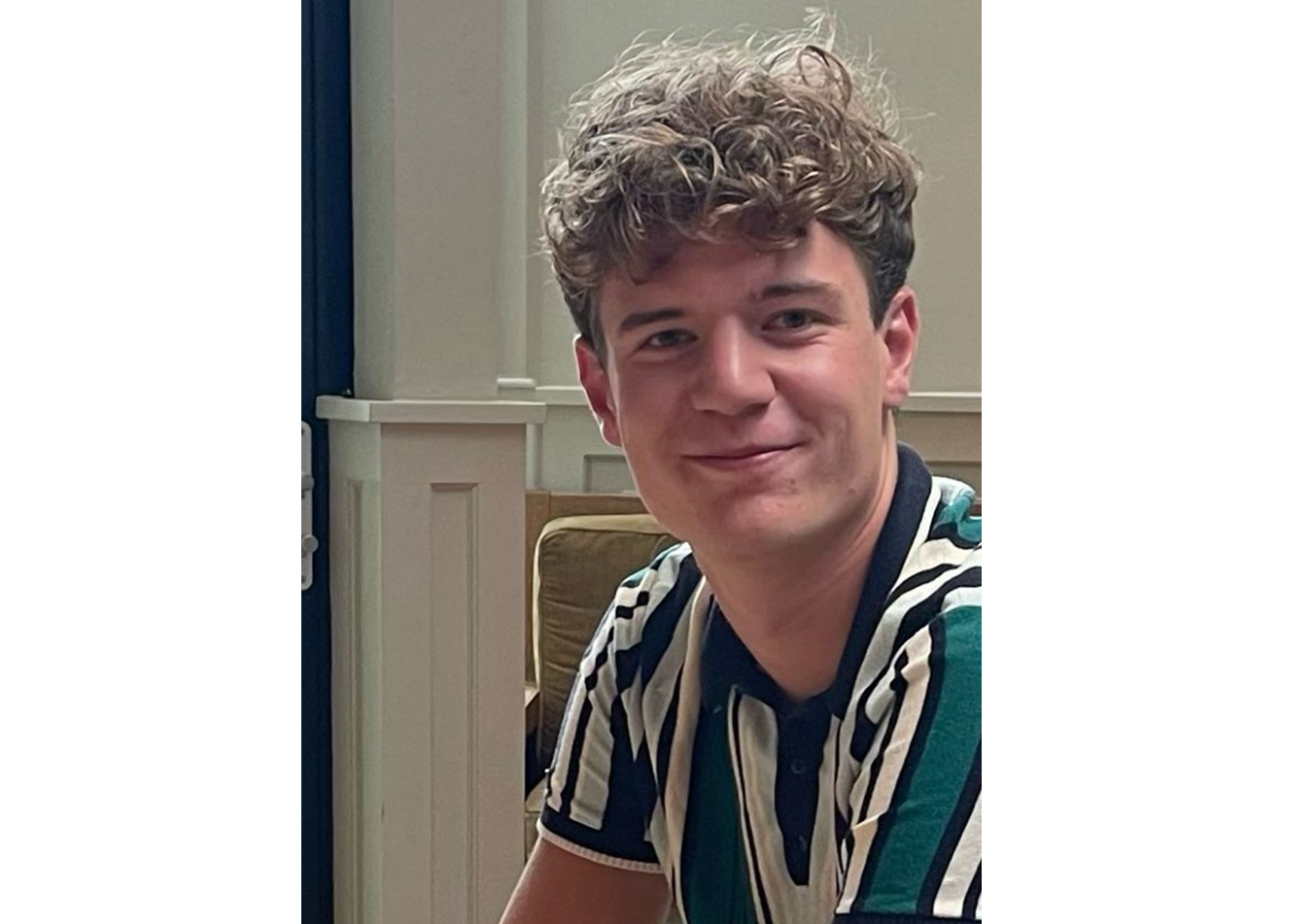
Hoi! Mijn naam is Alec de Jong, ik ben 19 jaar oud en zit in mijn derde jaar Grieks en Latijn. Omdat ik tijdens mijn studie nóg meer ontdekte hoe leuk ik taal vind, ben ik dit jaar ook gestart met de Bachelor Nederlandse taal en cultuur. Ik kom uit Nieuwehorne, Friesland en reis op en neer naar Groningen. Die reis is het wel waard, want de colleges zijn erg gezellig en interessant. Naast mijn studie speel ik korfbal, spreek ik af met vrienden en zoek ik graag dingen uit over de geschiedenis van mijn dorp of mijn familiegeschiedenis.
Al sinds de basisschool heb ik taal, geschiedenis en cultuur
heel erg interessant gevonden. Op het gymnasium merkte ik al dat
Grieks en Latijn méér was dan alleen taal. De filosofie,
kunst, geschiedenis, verhalen en gedichten: ik vond het allemaal
even leuk. Daarnaast kwam ik erachter hoe sterk de klassieke
oudheid de hedendaagse wereld heeft beïnvloed. Tijdens
vakanties, in boeken of gewoon op straat: overal zie je de sporen
van de Latijnse en Griekse cultuur.
Toen de studie mijn interesse gewekt had, heb ik deelgenomen aan de
webklas van GLTC. Dit vond ik al erg leuk. Op de open dag heb ik
ook andere studies bezocht, maar toen ik bij het proefcollege van
Grieks en Latijn zat, was ik verkocht. Eigenlijk werd voor mij
duidelijk dat alle onderdelen van andere studies die ik interessant
vond samenkwamen in deze studie. Na een aantal jaren studeren
ervaar ik deze veelzijdigheid zeker.
Om in Groningen te gaan studeren was voor mij heel logisch. Niet alleen de snelle verbinding met het openbaar vervoer en de locatie spraken mij aan, maar Groningen is ook een heel leuke stad om te studeren.
In de toekomst wil ik me verder gaan verdiepen in het gebruik van talen door de tijden heen, omdat het me leuk lijkt om bij een archief of erfgoedinstelling te gaan werken. Maar misschien ga ik ook wel het onderwijs in, er is namelijk veel mogelijk met een BA GLTC.
Twijfel je nog over je studiekeuze? Doe mee met Open Dagen, Eén Dag Student of de webklas. Op die manier krijg je een goed beeld van de verschillende onderdelen van de studie en merk je meteen of het jou gelukkig maakt.
Een gouden tip voor toekomstige studenten: lees en bekijk alles goed! Dompel je helemaal onder in de stof die je aangeboden wordt en geniet vooral. Dan zul je zien dat je verbanden gaat zien die je eerder nooit zag.
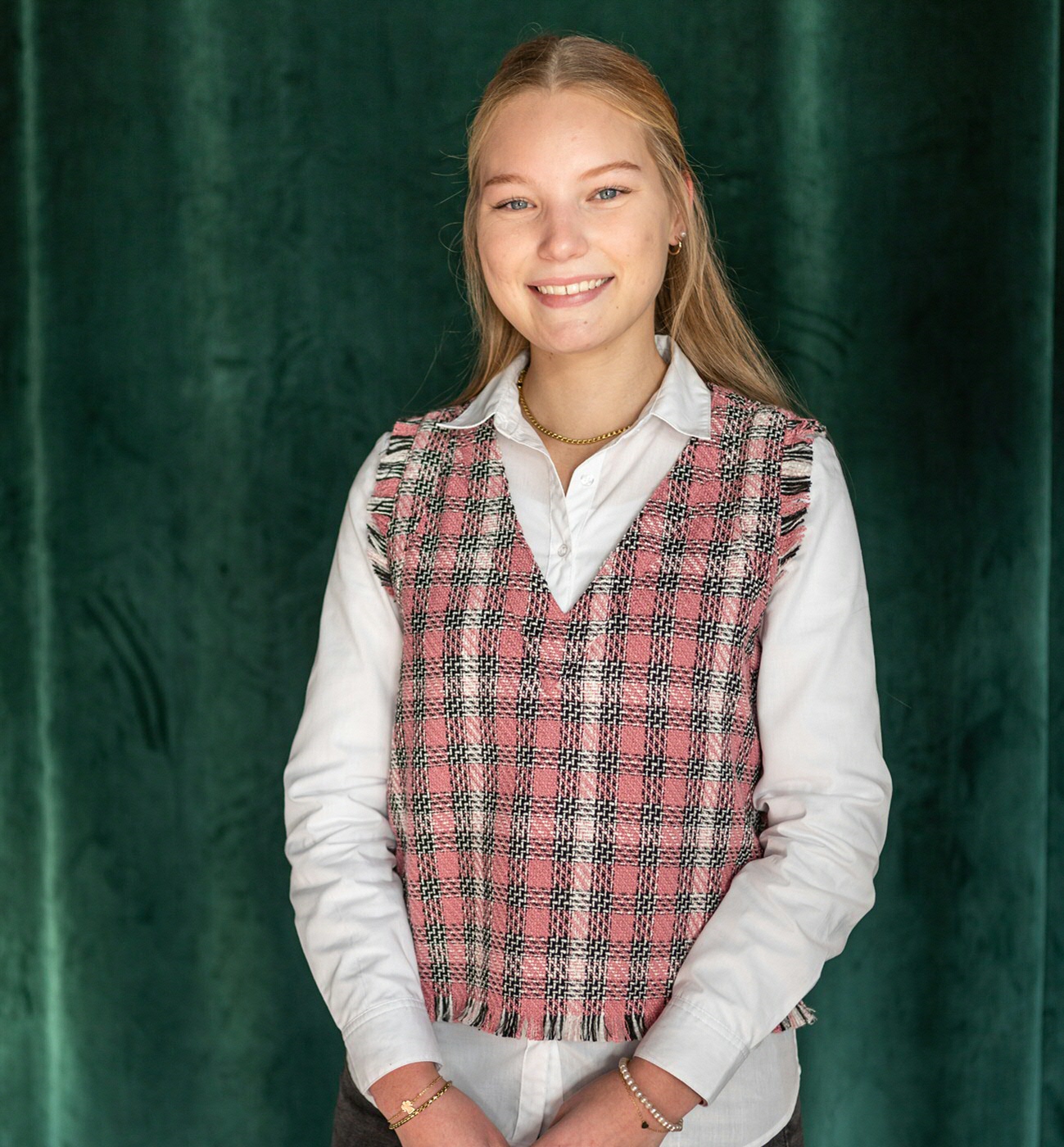
Hoi! Mijn naam is Marilin Jonkman, 21 jaar oud en ik ben nu vierdejaars studente. Ik heb afgelopen jaar de bachelor Griekse en Latijnse Taal en Cultuur afgerond, en dit collegejaar ben ik begonnen met de studie Psychologie. Momenteel ben ik dus geen studente GLTC, maar wel voor het derde jaar studentambassadeur en daarnaast studentassistente bij deze opleiding. Volgend jaar wil ik starten met de Educatieve Master Grieks en Latijn.
Ik woon in Hoogeveen en ik ga op en neer met de trein voor de colleges in de mooie studentenstad Groningen. Naast mijn studie speel ik viool en vind ik het leuk om met vriendinnen af te spreken, te lopen of te fietsen en om andere steden te bezoeken.
Ik heb deze studie gekozen omdat Grieks en Latijn op de middelbare school de vakken waren die mij het meest interesseerden. Dit waren de vakken waar ik naar uitkeek. Bovendien had ik een heel leuke docente, die mij enthousiasmeerde. Met mijn NG/NT-profiel op het gymnasium verbaasde ik veel mensen met mijn studiekeuze. Ik kon alle kanten op, maar ik koos juist voor deze studie en heb er geen moment spijt van gehad. Ik voelde mij hier meteen op mijn plek en heb de vakken als interessant en uitdagend ervaren. Het leukste vind ik het bezig zijn met de talen, die op het eerste gezicht zo anders lijken dan de moderne talen, maar ook zoveel overeenkomsten blijken te vertonen.
Are you a pre-university pupil and would you like to find out what studying at university is all about? The Classics degree programme offers a web class! A web class is a course offered by the UG via Brightspace (a digital teaching environment) for pupils in the 5th and 6th years of pre-university education. The course involves ten study hours, which serve as an introduction to Classics. You read texts, do assignments and hold discussions with other prospective students and a lecturer.
Interested? Sign up for the web class.